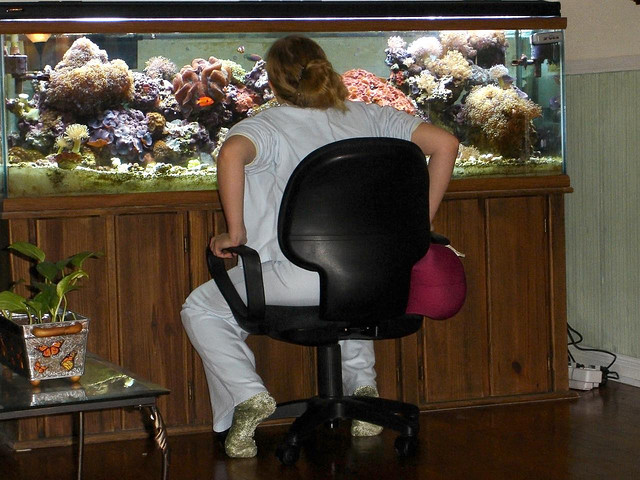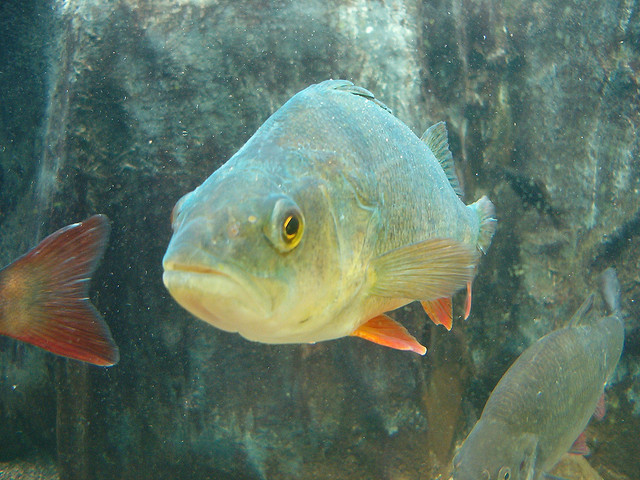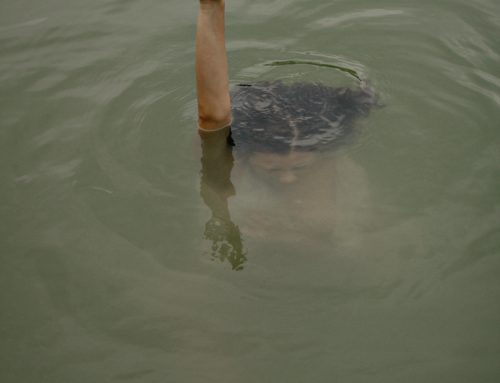Life in the fish tank – Where are you in this picture?
January 28, 2015
Do you advise businesses or other organisations for a living? Maybe you’re a lawyer or an accountant, a management consultant or a non-exec director. Then this blog is for you. I want you to imagine an organisation as a fish tank. It doesn’t matter whether it’s a very small tank with just a few fish in it or a huge aquarium with multitudes of sea creatures.
When you first look at it, the fish’s behaviour may seem random but then patterns start to emerge. Maybe you find yourself studying the biggest fish and the way others interact with it. Or maybe you see little clusters of smaller fish forming that seem to have an impact on the fish tank. Maybe some of the fish are related to each other and behave differently from those who aren’t. There are so many interesting things to examine about these fascinating exotic creatures.
OK, you’re probably thinking, vaguely interesting metaphor, but so what? Well the really important question is this:
Where are you in this picture?
My guess is that you see yourself, Attenborough-like, outside the tank, talking in hushed tones about the behaviour of these strange fish. But you’re not. The moment you get involved with an organisation, you’re in the tank and you affect the dynamics. As any naturalist or anthropologist will tell you, just the mere act of observing changes behaviour. Once you start interacting, everything changes.
Too often as professionals, we go into a situation acting as though there are dynamics within the group that we can observe objectively whilst remaining apart from them. It comes as a nasty shock when the fish who seemed to be separate or even fighting, suddenly move together and turn against you. I’ve had it happen to me and it always makes me reflect on my own behaviour within the ‘tank’.
What do you do in the tank?
Some people enter the fish tank with a huge splash – “I’ve come to rescue you/transform you/read you the riot act” – creating huge waves. Others slip in quietly and lurk behind a rock with a clipboard, discreetly observing what’s going on. That might sound like a better option but can have just as much impact, provoking all kinds of suspicion and rumours. It’s not that there’s a right or wrong way to do this – it depends on the circumstances and what you’re trying to achieve. The point is to recognise that you are in the tank and your mere presence will have an impact.
Je Suis Fishie
The other thing to remember, in this metaphor, is that you are also a fish. It’s all too easy to act as if you are some kind of naturalist watching a different species – “Look at the weird things they’re doing now”, “Why’s he done that, it makes no sense at all”. In my experience, this seems to be particularly true when dealing with family businesses – “ooh look, here’s the dominant male” – which seem to hold a peculiar fascination for people. It’s not that the dynamics of these businesses are not important, it’s just that we are likely to be more effective and more respectful if we remember that we could just as easily be in their position. Imagine someone offering a running commentary on a family Christmas at your place to get a sense of what that kind of observation is like.
They’re observing too
Bear in mind too that, as the outsider coming in, your behaviour is under scrutiny as much as theirs and their judgement is just as valid, perhaps more so as they’re paying the bill. At some point in your career as a professional adviser you may have decided that, in order to be a more effective lawyer, accountant or whatever, you need a better understanding of people. I’d argue that the person (or fish!) to start with is you. If you’d like to explore your impact and effectiveness with clients, I’d be very happy to talk to you: caroline@carolinegourlay.co.uk
At some point in your career as a professional adviser you may have decided that, in order to be a more effective lawyer, accountant or whatever, you need a better understanding of people. I’d argue that the person (or fish!) to start with is you. If you’d like to explore your impact and effectiveness with clients, I’d be very happy to talk to you: caroline@carolinegourlay.co.uk
Photo credits
Fishtank John Bullas
Fish tank 2 Colorblindpicaso
Fish Timo Pekka-Helma




